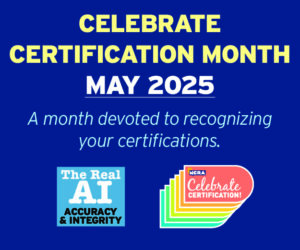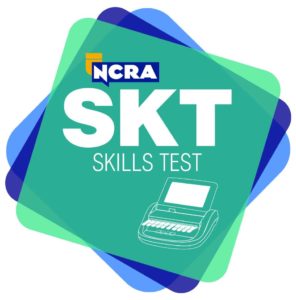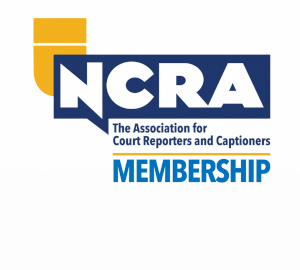
By Stephanie Famber
Last Spring, Stephanie Famber attended Georgia United, a seminar sponsored by the Georgia Court Reporters Association in Atlanta, Ga. “In Georgia,” Famber says, “as in several other states, we can now face the woes of court reporting together as a stronger, larger family. I hope we can set a good example and encourage others to follow.”
Why am I here? Those are the first words written in my notes from the Georgia United, 2019 Spring Seminar in Atlanta, Ga., hosted by the Georgia Court Reporters Association (GCRA) Mind you, those words were written roughly 30 minutes into a 12-hour seminar. No, it’s not what you think. I didn’t get bored of the speaker, start doodling and regret my decision to give up what could turn out to be a very long Saturday. “Why am I here?” is a far more profound question. We’ll get there in a minute.
My name is Stephanie. I am excited to say I am a court reporting student. I currently attend Brown College of Court Reporting in Atlanta, Ga., as a full-time student with a full-time job. This is only my third month as a court reporting student. I know I am as green as they come. I’m still shopping for my student writer and haven’t even started theory yet. I have a lot to learn, but I am all in and full speed ahead. Why else would I have given up a precious weekend for some seminar? Well, I have heard several seasoned reporters speak. One of the recurring themes I have heard is, “Join your association; be active.” Man, am I glad I did!
After a fantastic icebreaker about assumptions, the first GCRA speaker cut right to the chase and dove into their main topic, communication. The group dialogue began with how we can alter our behavior and speech to potentially change negative assumptions about ourselves or others. When the speaker opened the floor for topics relevant to a court reporter’s life, that’s when things got juicy. We went through the range of FAQs and how to best communicate an answer to them. “Aren’t you just typing really fast?” “When will you graduate?” “Aren’t you worried AI will take over your job?” “What do you do anyway?” And there it was, the first tough question as a new student that I didn’t know how to answer. I know what we do, but how do I explain that to someone outside of our world? Why ARE we here?
Now let’s back up to one of the other questions, “Aren’t you worried AI will take over your job?” The topic of electronic recordings in the courtroom was brought up several times by concerned court reporters and addressed by multiple speakers from a different perspective. As a brand-new student at the beginning of my journey to become a court reporter, I know very little in general, and even less about the adversity that is faced daily in the working profession. It was unsettling, albeit brief, to hear so many concerns in such a short amount of time.
Christine Phipps, the Vice President of NCRA, was a very comforting speaker. As both a seasoned court reporter and court reporting firm owner, Christine was able to speak with contagious confidence backed by years of experience. Christine is based in Florida, where she is all too familiar with the struggles brought by electronic recording encroaching on court reporters. She has seen big electronic recording companies swoop in and convince the right people to switch to electronic recording. She spoke of the period and struggles after the switch to or testing of electronic recording. As Christine chronicled some of her experiences, I found myself relaxing back into my chair, reassured by the logic and reason displayed by the lawyers and attorneys she mentioned as they came to realize the inferiority of an uncertified transcript produced from an electronic recording. A few moments later, I was sitting at attention again, as she preached passionately about our value as court reporters. Christine went as far as to say some Florida lawyers began to cancel depositions on the spot once they realized an electronic recorder had been sent in lieu of a court reporter. You, as a court reporter, are valuable. You may be underappreciated or taken for granted at times, but people definitely notice when you are gone.
Before attending the seminar, I had already heard or read stories of bias regarding which type of court reporter is better. It saddens me to realize this bias is so readily impressed upon those entering the world of court reporting. In my dealings at the seminar, it was apparent from the speech of some and the side comments of others that this bias is a real and present danger to the court reporting community. And yet, there is hope for a more united future. I spoke with several individuals who were considering changing their method of reporting. Some voice writers were ready to take on a new challenge, while other steno writers were tired of using their hands constantly. I was grateful to find a plentiful number of reporters to whom the style of takedown did not matter. If a voice writer and a steno writer can produce the exact same quality of transcript, does the method of takedown even matter? Can one method even logically be superior if the end result is exactly the same? I do not believe so.
Abraham Lincoln said, “A house divided against itself cannot stand.” The birth of GCRA has dissolved our division and united our previously separated court reporting associations. In Georgia, as in several other states, we can now face the woes of court reporting together as a stronger, larger family. I hope we can set a good example and encourage others to follow. I would like to thank GCRA for putting together such a wonderful inaugural seminar. This was an invaluable learning experience, and the seminar as a whole felt reassuring. I am optimistic about the future of court reporting. I can’t wait to join such a wonderful profession.
Stephanie Famber is a student at Brown College of Court Reporting in Atlanta, Ga.










